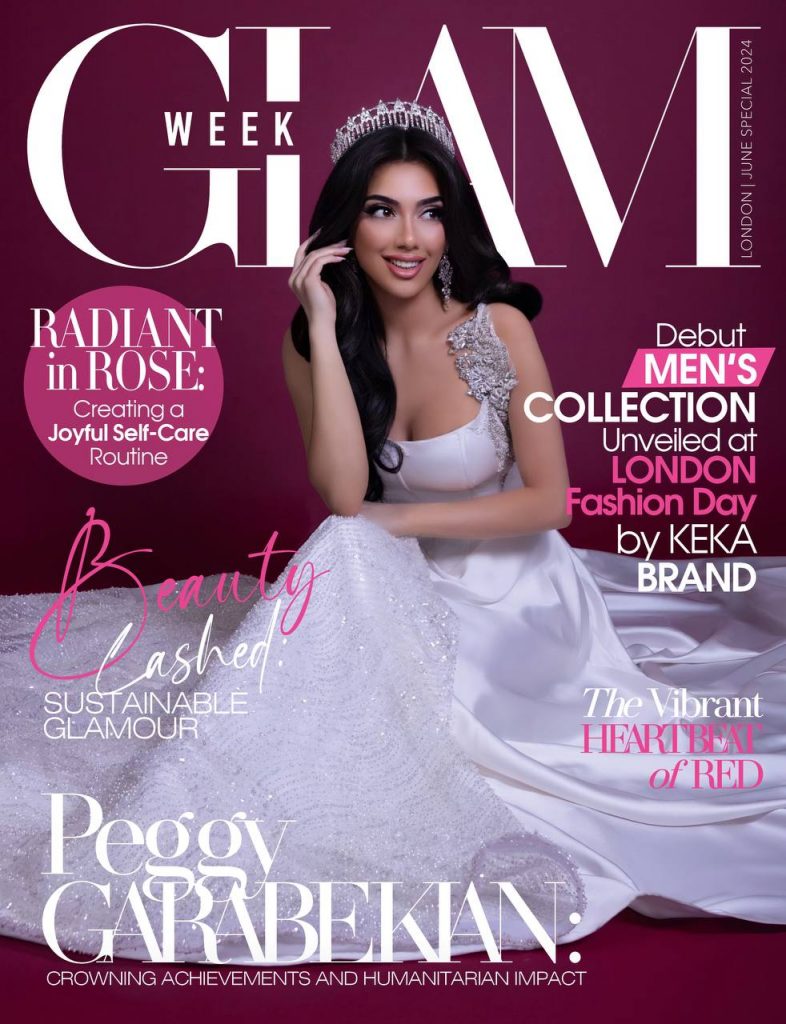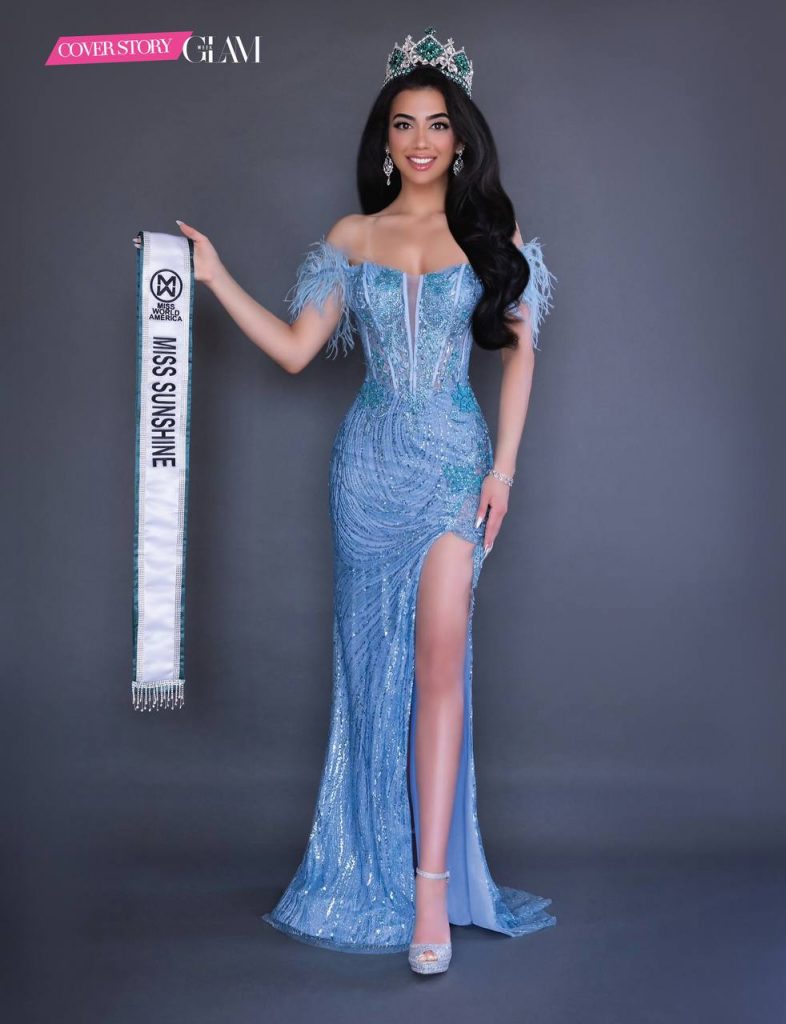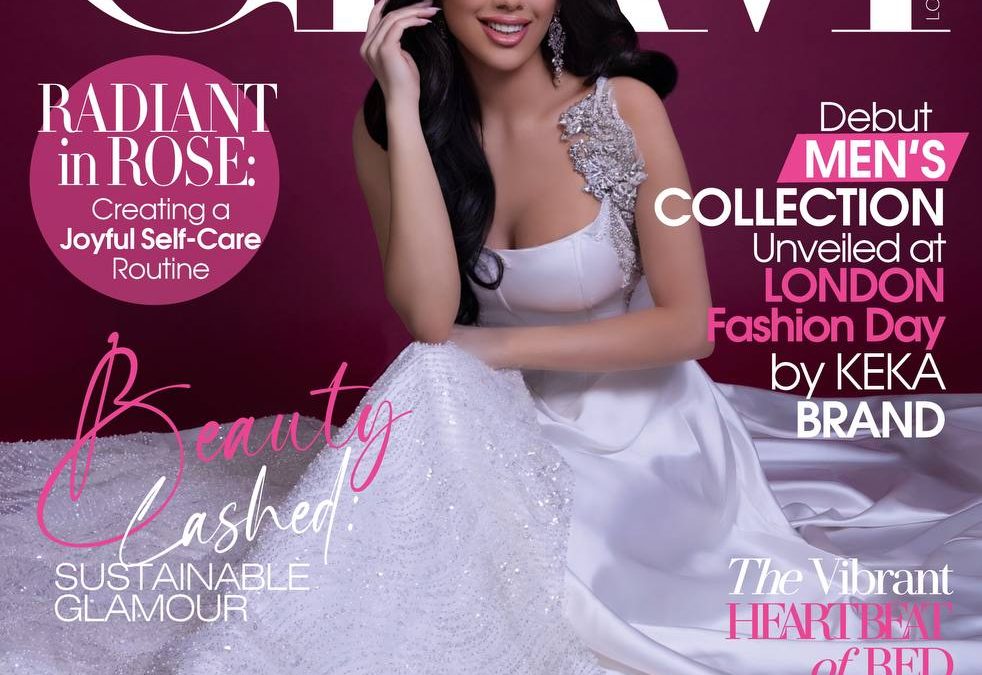
May Special 2024 Cover Gilda Garza
June 1, 2024
Mariana Souto
July 2, 2024
Peggy Garabekian’s journey from a high school student with no pageant experience to a celebrated figure in the pageant industry is a testament to her remarkable talent and determination. As the first Armenian Miss Pacific Coast USA, Peggy has not only achieved significant personal milestones but has also made invaluable contributions to the Armenian community and beyond. Her dedication to humanitarian efforts, advocacy for women’s rights, and her profound impact on the pageant world highlight her as a truly inspirational figure. In this interview, Peggy graciously shares her insights, motivations, and her unwavering commitment to empowering others and making a lasting positive impact on the world.
Peggy, your journey from a high school student with no pageant experience to a recognized figure in the pageant world is truly remarkable. What motivated you to take that first step into pageantry, and how has it shaped your life since then?
• I was scouted by the president of a prestigious pageant in 2012. I felt the Lord had placed this opportunity in my path for a purpose, and I eventually competed in 2015 after much deliberation. Since then, my involvement in pageantry has been multifaceted, encompassing roles as a delegate, coach, production manager, and assistant for various pageant productions. Drawing on these experiences, I’ve transitioned into a career as a seasoned business expert, mentor, and trusted advisor. It has not only shaped my professional journey but has also become an integral part of my life.
Winning titles such as Miss Congeniality and the People’s Choice award must have been incredibly rewarding. How did these early achievements influence your confidence and career in the pageant industry?
• Being awarded these titles so early on in my pageant journey provided valuable insight into my ability to connect with others and confirmed that I was headed in the right direction. I do not take either of the titles lightly because they reflect not only how others see me, but also the meaningful relationships I make. In pageantry, success goes beyond appearances; authenticity and genuine connections are what pull individuals to the top.
Your recent accomplishment as the first Armenian Miss Pacific Coast USA is groundbreaking. How do you plan to leverage this title to further your advocacy for human rights and empower others?
• Thank you. I’m a very proud Armenian and strive to be a positive representative of my people, culture, and values. Achieving this significant milestone is an immense honor for me. When I achieve success or reach new milestones, I make it a point to redirect the attention I receive towards organizations committed to humanitarian and philanthropic causes. My ultimate goal is to inspire others and instill hope by demonstrating the potential impact of using one’s influence for the greater good. I want my experience to serve as a testament to building success from humble beginnings while using my platform to make a positive impact on the world.
Competing in the upcoming Miss California USA pageant is a significant milestone. What are your primary goals for this competition, and how are you preparing for it?
• Sometimes I find it hard to believe how far I’ve come. It was always a distant dream, something I thought was beyond my reach. Now, I see it as my duty to be a voice for young girls and women worldwide who are denied the same opportunities. Through this platform, I’m dedicated to advocating for the freedom and rights of women in regions where their voices are silenced, their potential is stifled, and honoring those who have lost their lives to oppression. My focus is on supporting and collaborating with organizations like Nadia’s Initiative, which share my vision, in igniting a global movement for change where all women can live free.
Your role as a pageant coach and production manager allows you to see the business side of pageantry.

What insights have you gained from these experiences, and how do they enhance your effectiveness as a mentor and consultant?
• Transitioning from competing as a delegate to immersing myself into the business side of pageant production was a challenge. It felt like reverse engineering—I had to deconstruct everything I knew about pageantry to understand its inner workings fully. It was probably one of the most humbling experiences of my life, but with dedication, exposure, and practice, I gradually acquired the skills necessary for success in the business aspect of pageantry. Now, with this knowledge, I am better equipped to mentor and educate delegates on their path to success while fostering authentic connections with each individual.
Your humanitarian work is both extensive and impactful. Can you share a particularly memorable moment or project from your philanthropic efforts that has had a profound effect on you?
• One of the most impactful moments in my philanthropic journey unfolded during Azerbaijan’s orchestrated forced displacement and ethnic cleansing of Armenians from their homes in Artsakh. I witnessed Armenians from all walks of life come together in a remarkable display of solidarity, offering support, resources, and assistance to those affected. It exemplified the power of unity in times of crisis, confirming the importance of compassion, empathy, and cooperation in addressing humanitarian challenges. It was a touching reminder of the enduring spirit of solidarity that defines Armenian culture, and it further fueled my determination to contribute to humanitarian efforts that uplift and empower communities facing adversity.
As a key organizer of the Annual Armenian Genocide Commemoration March and Candlelight Vigil, what have been some of the challenges and successes in raising global awareness about the Armenian Genocide?
• One of the main challenges has been overcoming historical denial and political obstacles. Despite overwhelming evidence, there are still entities and governments that deny or downplay the Armenian Genocide for political reasons. Navigating these challenges while staying true to the mission of raising awareness and honoring the memory of the victims requires strategic planning, perseverance, and diplomatic efforts. Despite these obstacles, the events have been successful in educating the public about the Armenian Genocide and fostering solidarity among diverse communities in the fight against genocide denial and impunity.
Working with organizations like Nadia’s Initiative highlights your commitment to defending women’s rights. What drives your passion for this cause, and what are some of your future plans to support women facing gender-based violence and other injustices?
• Nadia’s Initiative commits to rebuilding communities in crisis and advocates for survivors of sexual violence globally. One of their key goals focuses on sustainable redevelopment in Sinjar, Iraq, the Yazidi homeland destroyed by ISIS during their genocidal campaign. They collaborate locally and internationally to restore education, healthcare, livelihoods, and women’s empowerment in the region. Their goals have further inspired me to establish my own organization dedicated to empowering women and young girls through holistic rehabilitation, education, and advocacy, for lasting change and equality.
Establishing the first Armenian-oriented street name, Artsakh Avenue, is a significant achievement. How did this project come to fruition, and what impact has it had on the community?
• The project began with a proposal in April 2017, followed by formal requests to the Glendale City Council in February 2018. After receiving approval on March 13, 2018, Artsakh Avenue was officially endorsed on June 12, 2018. This initiative has had a profound impact, promoting a sense of recognition, pride, and belonging within the Armenian-American community in Glendale, while also honoring the cultural heritage and historical significance of Artsakh.

It represents the power of grassroots advocacy and community mobilization in effecting positive change.
Your aspiration to start an organization dedicated to empowering women is inspiring. What vision do you have for this organization, and how do you plan to create lasting change and equality for women through holistic rehabilitation, education, and advocacy?
• Thank you. I aim to create comprehensive rehabilitation programs aimed at supporting women who have experienced various forms of trauma, including domestic violence, trafficking, and discrimination. The programs will provide psychological support, practical skills training, and resources to help women rebuild their lives with dignity and independence. Initiatives would be established that ensure girls have access to quality education, free from poverty, gender stereotypes, and cultural norms. Providing adult education and vocational training opportunities to enhance their skills and employability would foster economic empowerment and break the cycle of poverty. Advocacy is important to any mission. I will continue to amplify the voices of women and advocate for policies and societal changes that promote gender equality, including legal reforms to protect women’s rights, initiatives to increase women’s representation in leadership roles, and campaigns to challenge harmful gender norms and stereotypes. My approach will be collaborative and community-driven. By partnering with local organizations, government agencies, and grassroots movements, I would use collective resources and expertise. Ultimately, my goal is to create a world where all women have the opportunity to live a life free from violence, discrimination, and inequality.


